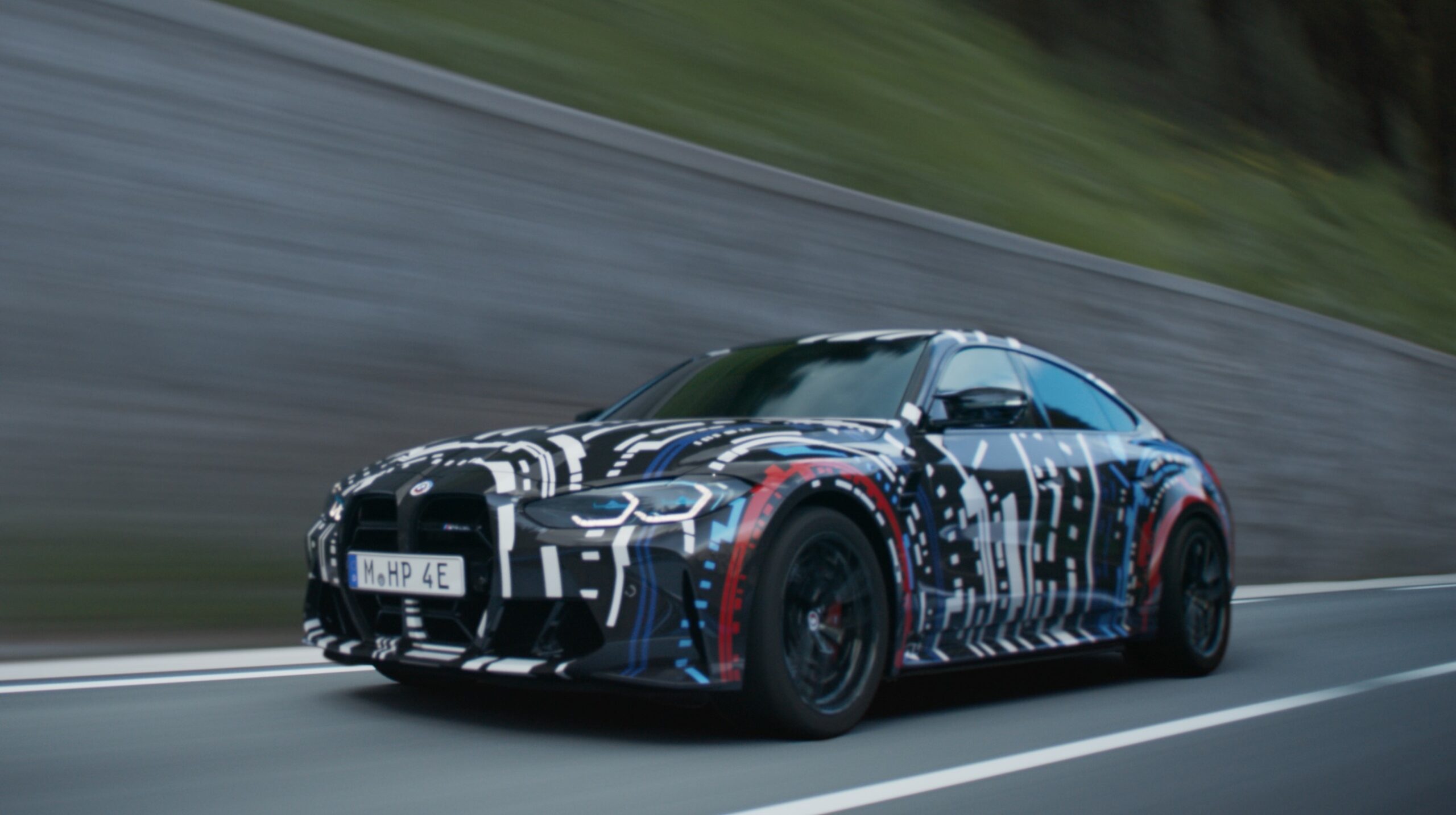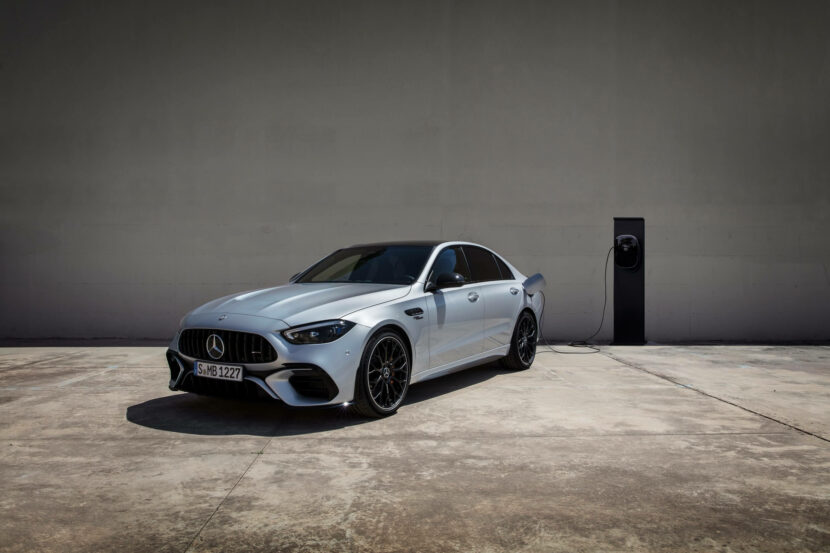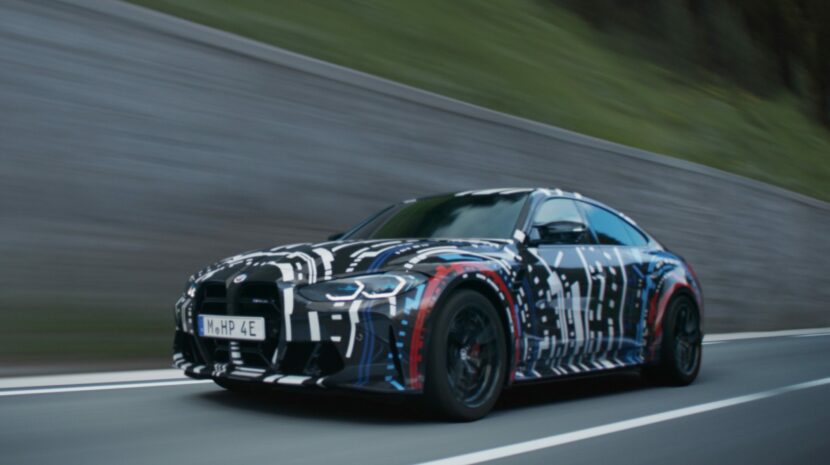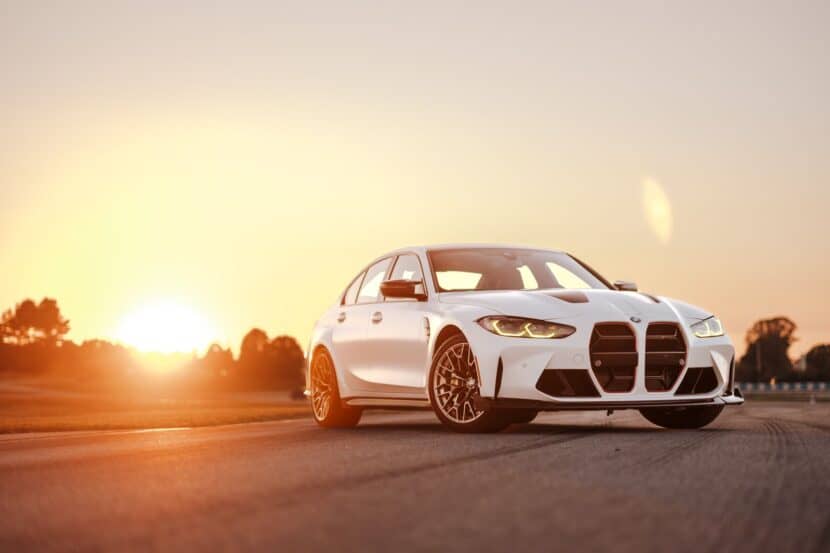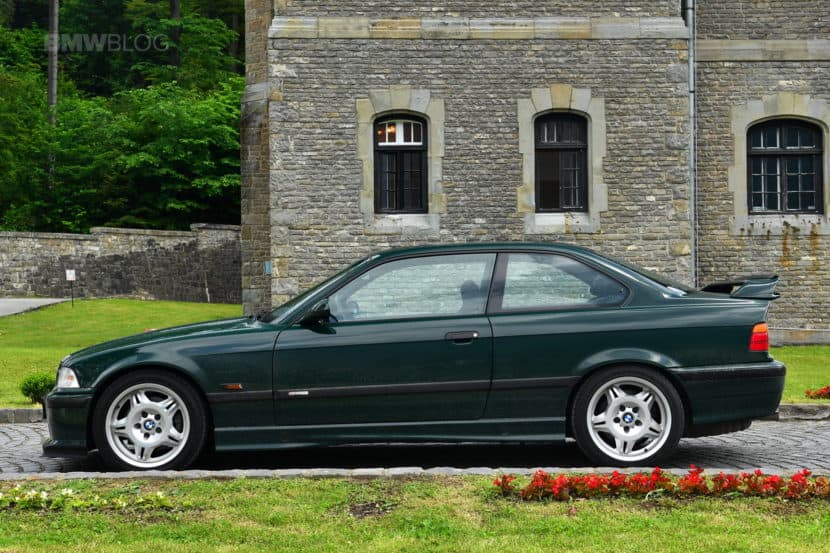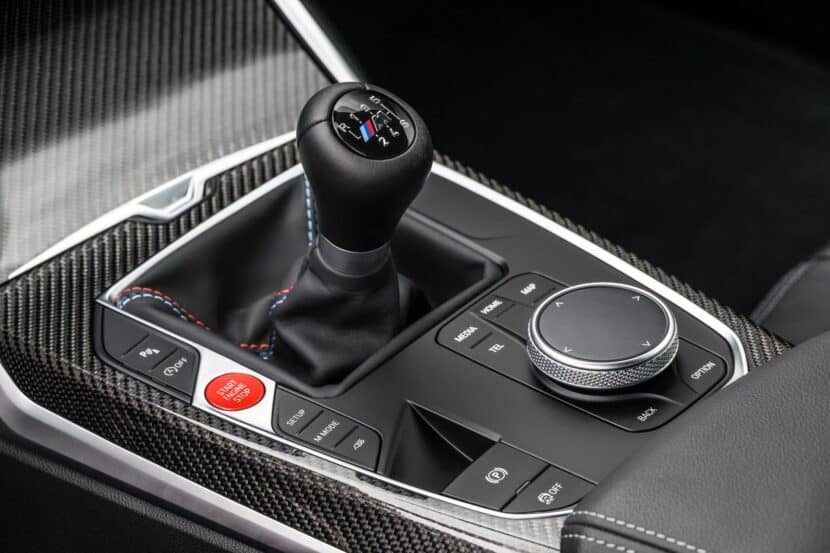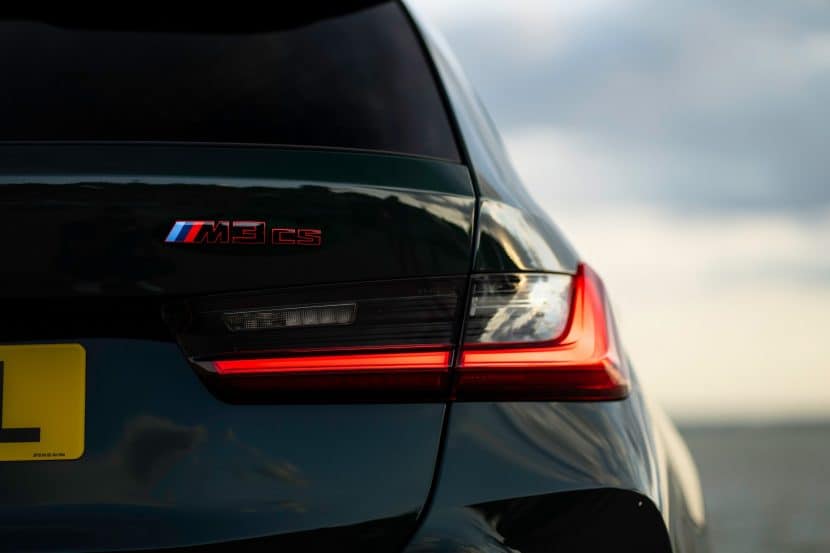The exact direction of BMW’s future M cars, especially the M3 sedan, seems uncertain given the mismatch between the brand’s traditional values and the compromises that need to be made in the name of electrification. Much like Porsche, BMW wants to stick to its combustion engines in its dedicated performance models, but at the same time, it will have to find a way to keep the lawmakers (who are pushing for EV-only sales by the middle of the next decade) happy.
Mercedes C63 Points the Way with Plug-In Power
If we look at BMW’s traditional rival Mercedes-Benz and the latest AMG C63 (the M3’s traditional rival), the future seems to be all about big-power plug-in hybrids that blend downsized gasoline power with plenty of electric punch—the C63 has a four-cylinder turbo, which together with an electric motor makes 671 horsepower. BMW has not shied away from making a plug-in hybrid M car with the launch of the XM, whose powertrain is expected to also power the next M5.
All this would strongly suggest that a similar change of formula awaits the M3 nameplate. However, it’s been speculated that BMW is actually working on two different flavors of its bread-and-butter performance sedan: one will be a full EV, while the other will be an evolution of the current model that will keep its S58 straight-six that won’t feature electrification. This has not been confirmed yet, but it’s an approach that makes sense as it would allow BMW to keep both the purists and the lawmakers happy at the same time. What we know for certain is that BMW won’t call the electric M3 equivalent the iM3, which we know after BMW M boss Frank van Meel said the M division doesn’t plan to ever use a combination of “i” and “M” in a production car.
Two Tracks for the M3: EV Evolution and ICE Innovation
The electric M3 will wear an M badge, of course, but its nameplate won’t imply that it’s an EV. To us, this makes it sound as if BMW M has faith that the M3 EV equivalent will be exciting enough to match its ICE offerings. We know that BMW M has been testing quad-motor EV prototypes, and that would certainly be an enticing prospect for an electric performance car, and it could also have remarkable handling characteristics.
For reference as to what the electric M3’s handling could be like, we can look at the limited-series 2013 Mercedes-Benz SLS AMG Electric Drive. It had a 750-horsepower quad-motor setup, and it left reviewers of the time in awe with its remarkable handling and agility achieved by being able to precisely control the power delivery to each wheel. Now imagine the combination of over a decade of EV tech progress and BMW M’s expertise when it comes to making fun, sporty cars, and the electric M3 becomes one of the most hotly anticipated future EVs.
Electrifying Options: Quad-Motor Mania or Nimble RWD Rear-Wheel Drive?
Reports suggest that the electric M3 could have over 700 horsepower from its quad-motor setup; potentially even more for special models. BMW is also believed to be looking into making dual-motor, rear-wheel drive electric M cars. This would make a lot of sense for the same reasons why a quad-motor model would: it would enable BMW to dial in the handling and make the car exceptionally controllable.
As appealing as a 1,000+ horsepower quad-motor electric M car would be, a lighter, more nimble dual-motor rear-wheel drive model would still be the pick of the enthusiast. And if the same enthusiast just doesn’t want to switch to electric, the next-gen gas-burning M3 will still be an option.
If BMW does give a new ICE M3 (G84) the green light, it will arrive after the year 2026, when the Bavarians are expected to introduce a new 3 Series codenamed G50. The next-gen 3 Series will be a more traditional and conservative model that is expected to keep selling well even after the end of the decade, while the electric equivalent, based on the Neue Klasse platform, will be a far more futuristic proposition that breaks with tradition.
Hints and Hopes: Unveiling BMW’s M3 Roadmap
We will have to wait and see what hints BMW drops to reveal its plans, but to us, it would make sense to have two parallel iterations of the M3 for different people. It’s not uncommon in the industry to have two different models that occupy the same market segment, one offering ICE and the other pure electric power (Mercedes-Benz has two completely separate lineups of models), so there’s a strong chance that’s what we will see at BMW as we approach the end of the decade.
This scenario is honestly more exciting than just having one flavor of M3 since the electric model will be able to do things the gas-burning car just won’t be able to match. The EV will feature BMW’s sixth-generation battery technology, which will result in smaller and lighter battery packs that will keep overall vehicle weight down and not affect the handling as much as in many current EVs.


